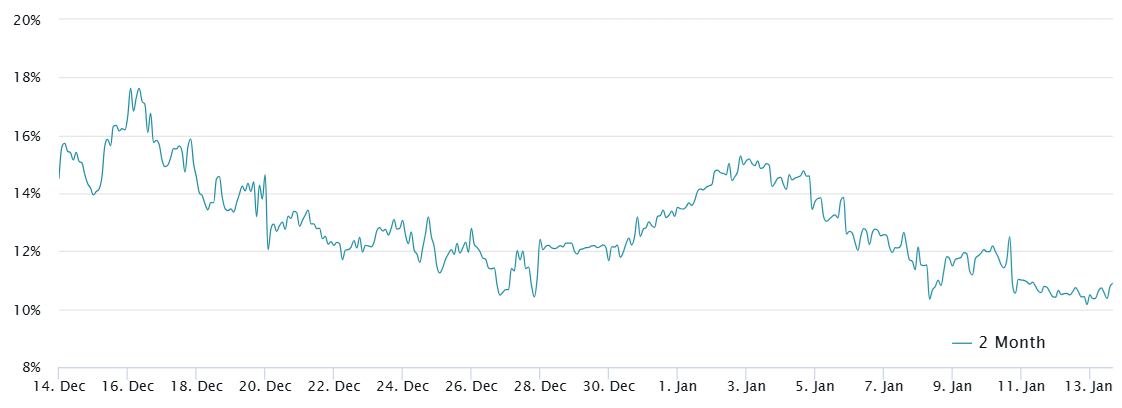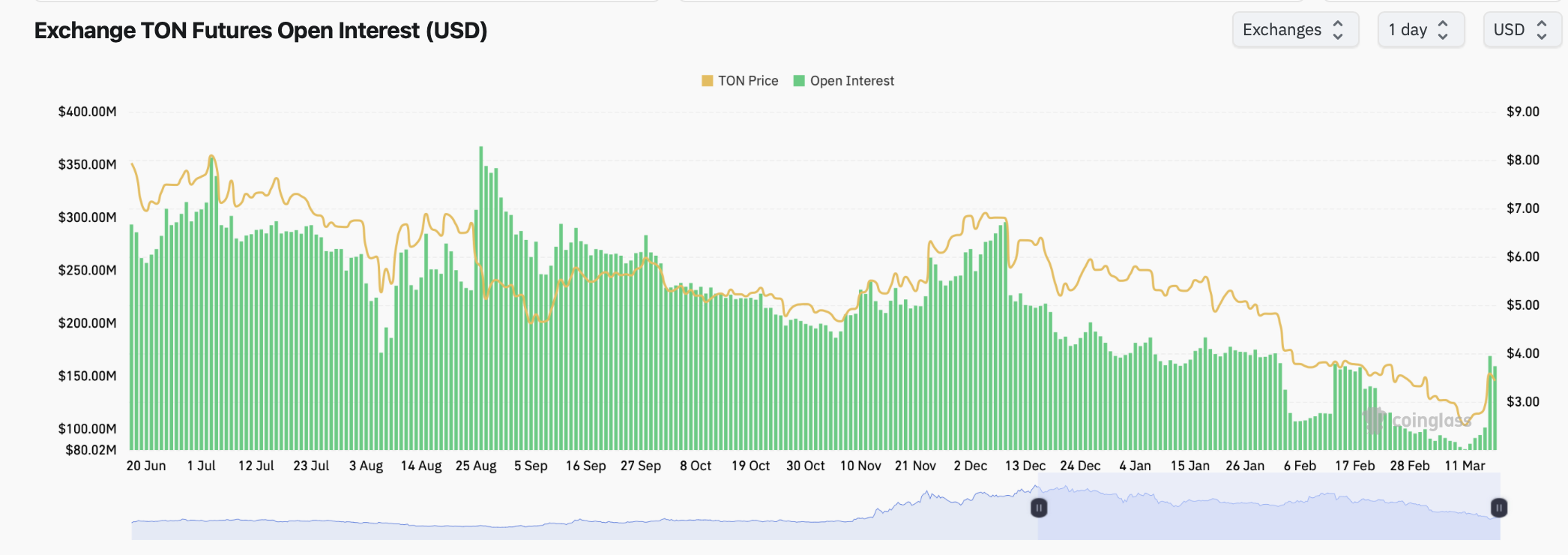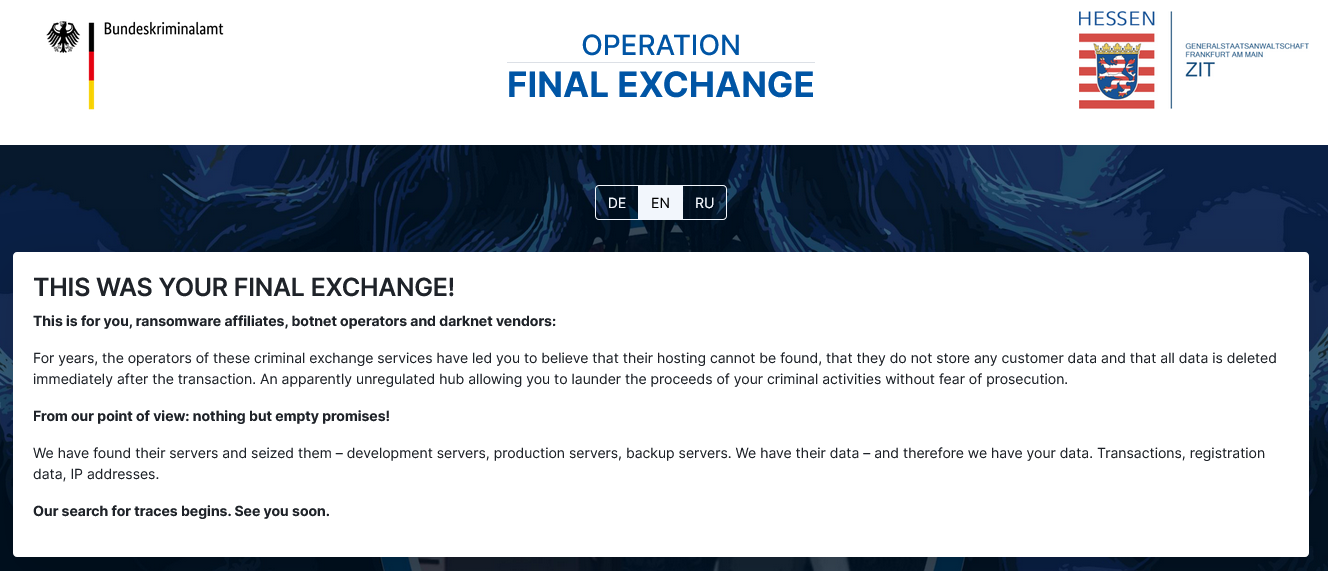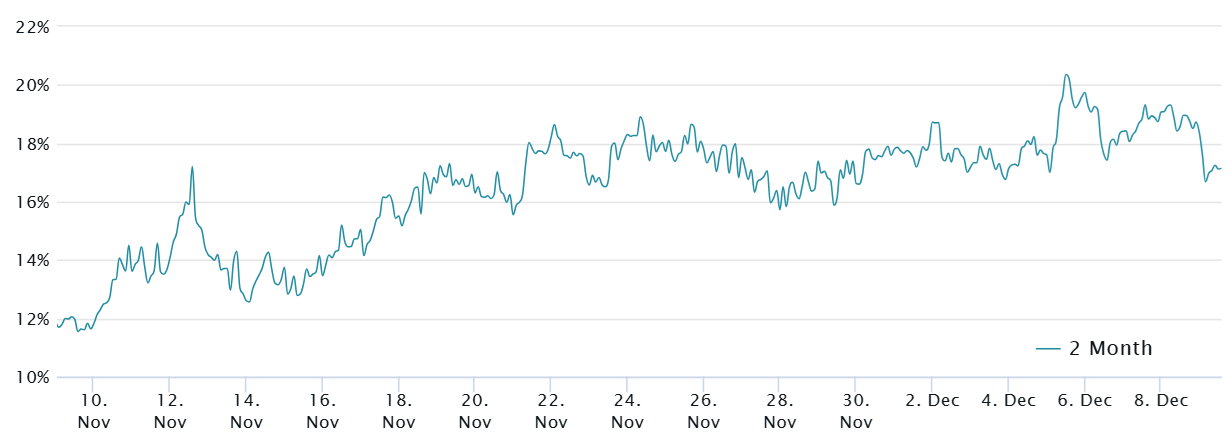Bitcoin (BTC) experienced significant selling pressure on Jan. 13, falling below $90,000 for the first time in eight weeks. This decline represented a 12.5% price drop over seven days, tempering traders’ optimism. Despite this, Bitcoin derivatives metrics signaled a neutral to bearish outlook, suggesting that whales and market makers remained largely unaffected by the downturn.
Bitcoin 2-month futures annualized premium. Source: Laevitas.ch
Bitcoin futures monthly contracts typically trade at a premium over the spot market due to their longer settlement period. The current annualized premium of 11% exceeds the neutral range of 5% to 10%, reflecting optimism among market participants. Similarly, the funding rate for perpetual BTC contracts—preferred by retail traders—has remained positive, indicating a neutral to positive sentiment.
Bitcoin perpetual futures 8-hour funding rate. Source: Laevitas.ch
For a brief period on Jan. 13, the funding rate turned negative due to heightened demand for bearish positions. This shift coincided with the liquidation of $107 million in leveraged long positions. However, the indicator quickly normalized to 0.5% per month, showing no sustained bearish sentiment in Bitcoin futures markets.
Bitcoin price pressured as investors exit risk markets
Investor sentiment deteriorated after the S&P 500 index failed to maintain levels above 6,000 on Jan. 6, subsequently declining 4.1% over the following week. A stronger-than-expected US jobs report raised concerns that the Federal Reserve might keep interest rates elevated for longer than anticipated.
This uncertainty pushed the 10-year US Treasury yield to its highest level since November 2023, signaling that traders demand higher returns to hold government bonds. Such dynamics often reflect fears of inflation or recession, compounded by weakness in the broader stock market.
US Dollar Index (left) vs. US 10-year Treasury yield (right). Source: TradingView / Cointelegraph
The appreciation of the US dollar against a basket of foreign currencies, measured by the DXY index, indicates that major investors are adopting a cautious stance, favoring cash and short-term bonds. Geopolitical tensions intensified after the US imposed stricter sanctions on Russian crude oil exports, threatening supply chains to key consumers like China and India, according to Yahoo! Finance.
Some analysts argue that Bitcoin’s recent performance has been overly reliant on MicroStrategy. On Jan. 13, the company announced the completion of another Bitcoin purchase, adding 2,530 BTC within a week. This brings its total Bitcoin holdings to a substantial level, supported by $6.5 billion in approved share sales. Additionally, the firm plans to raise $2 billion through perpetual preferred stock offerings.
Related: US election another ‘buy the rumor, buy the news’ event for BTC: Pantera
Institutional Bitcoin flows signal mixed sentiment
US-listed spot Bitcoin exchange-traded funds (ETFs) saw $718 million in outflows over two days, raising questions about institutional demand. However, inflows of $1.94 billion during the preceding three sessions suggest that it might be premature to conclude a waning interest in Bitcoin. Despite recent fluctuations, Bitcoin has posted a 37% gain over the past 90 days, underscoring its resilience.
Traders must account for risks tied to a potential global economic slowdown, as uncertainty drives investors toward cash positions. Regardless of the measures implemented by President-elect Donald Trump, the US fiscal outlook for 2025 is likely to remain challenging.
With limited policy flexibility to avoid stoking inflation, the risk of a recession remains tangible. This environment could dampen short-term appetite for Bitcoin as investors prioritize safety over assets deemed risky.
This article is for general information purposes and is not intended to be and should not be taken as legal or investment advice. The views, thoughts, and opinions expressed here are the author’s alone and do not necessarily reflect or represent the views and opinions of Cointelegraph.



